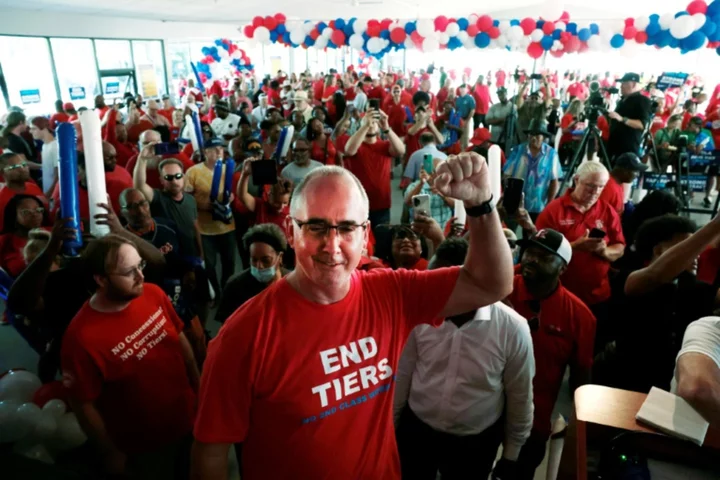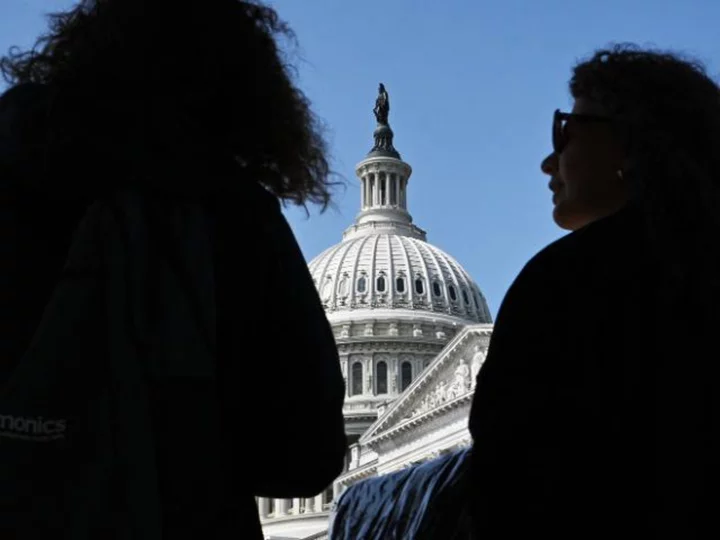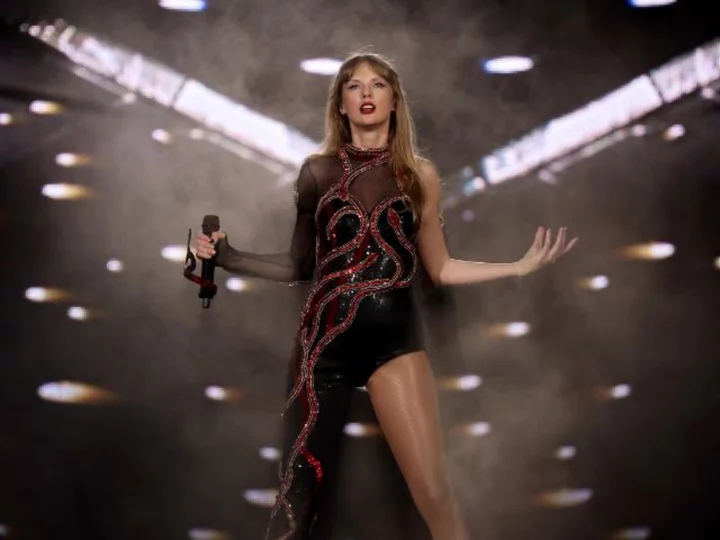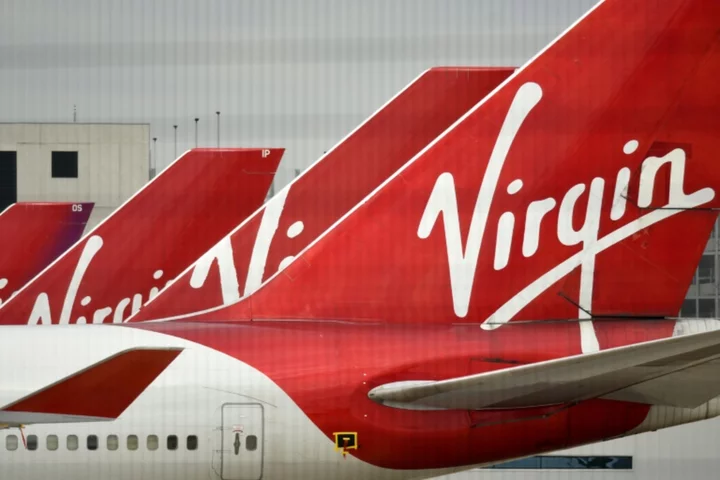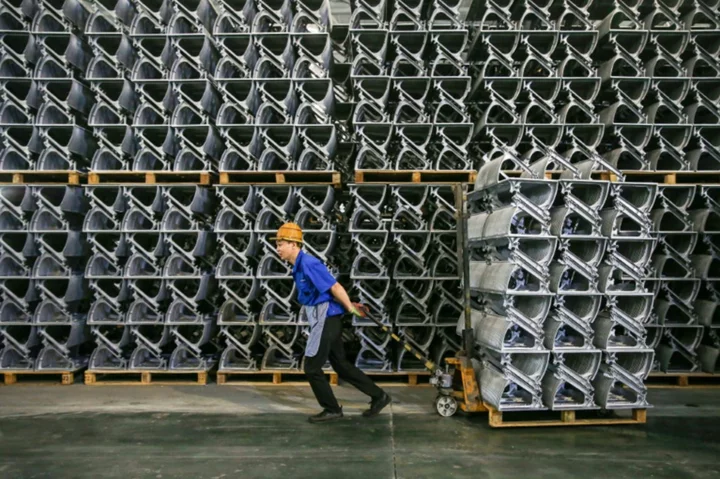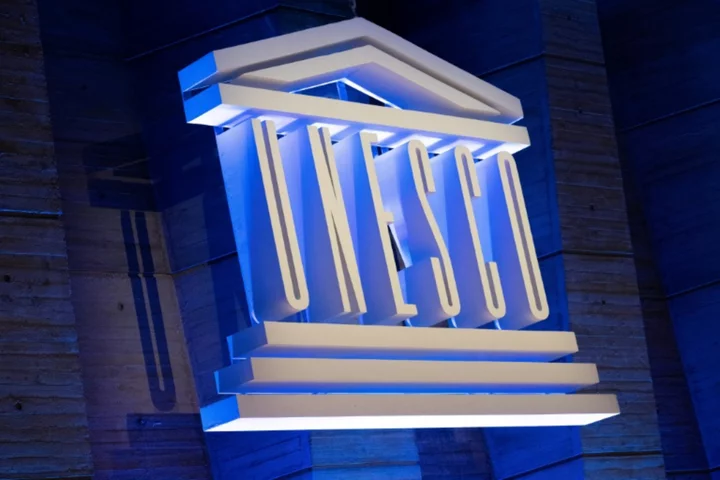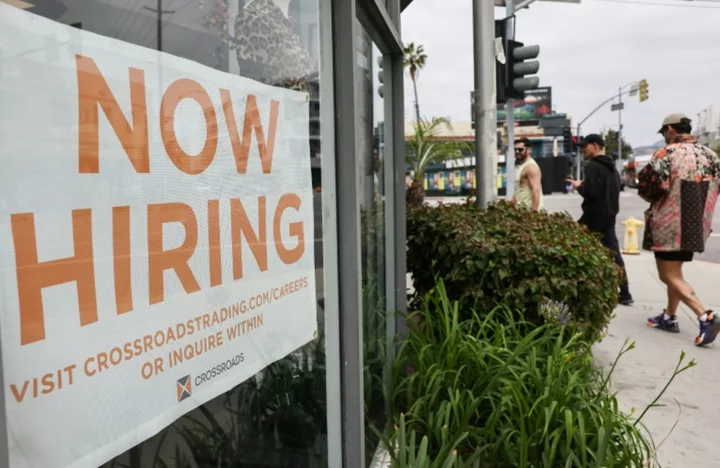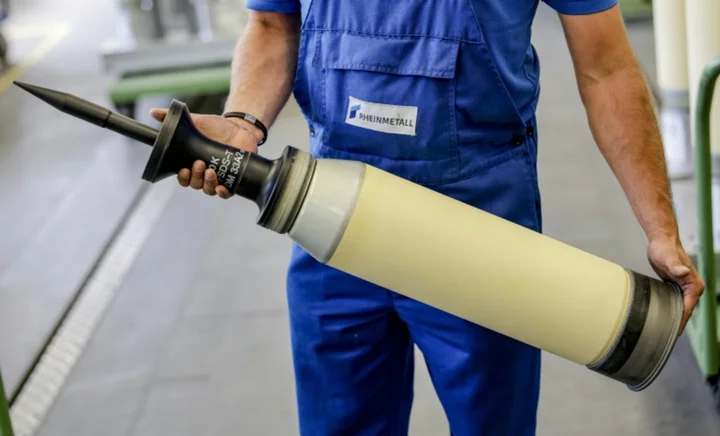With the clock ticking down to a possible strike, Detroit carmakers are staring at tough contract negotiations with an emboldened auto workers union led by a fiery new president.
Shawn Fain, who was sworn in as president of the United Auto Workers five months ago, is laying the foundation to potentially strike if there is no agreement by September 14.
"Record profits deserve record contracts," Fain told a rally on Sunday in Michigan with workers from the Detroit Three: General Motors, Ford and Stellantis.
While the plan is not to strike, "we'll get it done by any means necessary," Fain said.
The UAW's push comes in a period dubbed #HotLaborSummer as unions flex muscles in a still-tight employment market. Hollywood has been virtually shut down by writer and actor strikes, while UPS avoided a stoppage following difficult negotiations.
A strike at all three companies would involve about 150,000 workers, with a potentially wide-ranging economic impact on suppliers and industry-adjacent services.
The talks are on the radar of President Joe Biden, who recently called for a "fair" contract that ensures workers' rights are strengthened during the transition to electric vehicles (EVs).
The UAW is expected to announce on Friday the results of strike authorization votes.
Fain has signaled a willingness to strike at all three companies, although labor experts think if there is a strike, a stoppage at just one company is more likely.
Fain has argued workers should get the same 40 percent salary boost given to auto executives. Other demands include a restoration of cost of living adjustments (COLA), guaranteed pensions for all workers and elimination of a multitiered compensation system.
At the rally, Fain defended his call for a 32-hour work week, slamming a system that allowed executives to work from home during the pandemic while "our members were expected to risk their lives and some sacrificed their lives."
The pandemic helped "create a sense among the American workforce that they don't have to tolerate bad working conditions anymore," said Michelle Kaminski, a professor at Michigan State University who specializes in labor relations.
"These are the most favorable conditions for unions in decades," she said.
- Reform candidate -
Fain, 54, who worked as an electrician at a Stellantis factory in Indiana, narrowly won the first UAW presidential election with direct voting by rank-and-file members. The voting was overseen by a court-appointed monitor after a corruption scandal led to prison terms for two former UAW presidents.
In the campaign, Fain ran as a reformer, criticizing other UAW leaders for an overly cozy approach with management and a legacy of plant closures and lower pay for junior employees.
He has maintained an aggressive posture since taking office, shunning a ceremonial handshake with auto CEOs when the talks kicked off.
In a streamed bargaining update earlier this month Fain plunked Stellantis' proposal in the trash, a gesture the company criticized as "theatrics and personal insults."
Stellantis said it was committed to reaching an agreement "based on economic realism" that reflects the pressures of competing with nonunionized automakers.
"Agreeing to Mr. Fain's demands could endanger our ability to make decisions in the future that provide job security for our employees," Stellantis said in a letter to employees.
GM said it has "been working hard with the UAW every day to ensure we get this agreement right for all our stakeholders," while Ford said it looks "forward to working with the UAW on creative solutions ... when our dramatically changing industry needs a skilled and competitive workforce more than ever."
- Compromise? -
Fain's strategy with the Detroit Three has taken a page from that of Teamsters President Sean O'Brien, who also presented regular livestream updates and organized "practice pickets."
UPS workers overwhelmingly approved a contract that included hefty wage increases and an elimination of a two-tier wage system.
Labor historian Nelson Lichtenstein, who noted the UAW's long history of striking, said Fain could "claim victory" with hefty wage hikes and elimination of the tiered system.
Harry Katz, a professor at Cornell's School of Industrial & Labor Relations, said a compromise could include a cost-of-living adjustment and a narrowing of pay gaps in tiers.
Fain "will definitely deliver a favorable contract," Katz said. "It's all a question of how favorable."
But Katz said there is also a decent chance of a strike if either side misreads the situation. While the UAW has some leverage over the carmakers, it has less compared with the Teamsters in the UPS case, given the heavy number of US vehicles built by nonunion automakers.
jmb/tjj/dw

